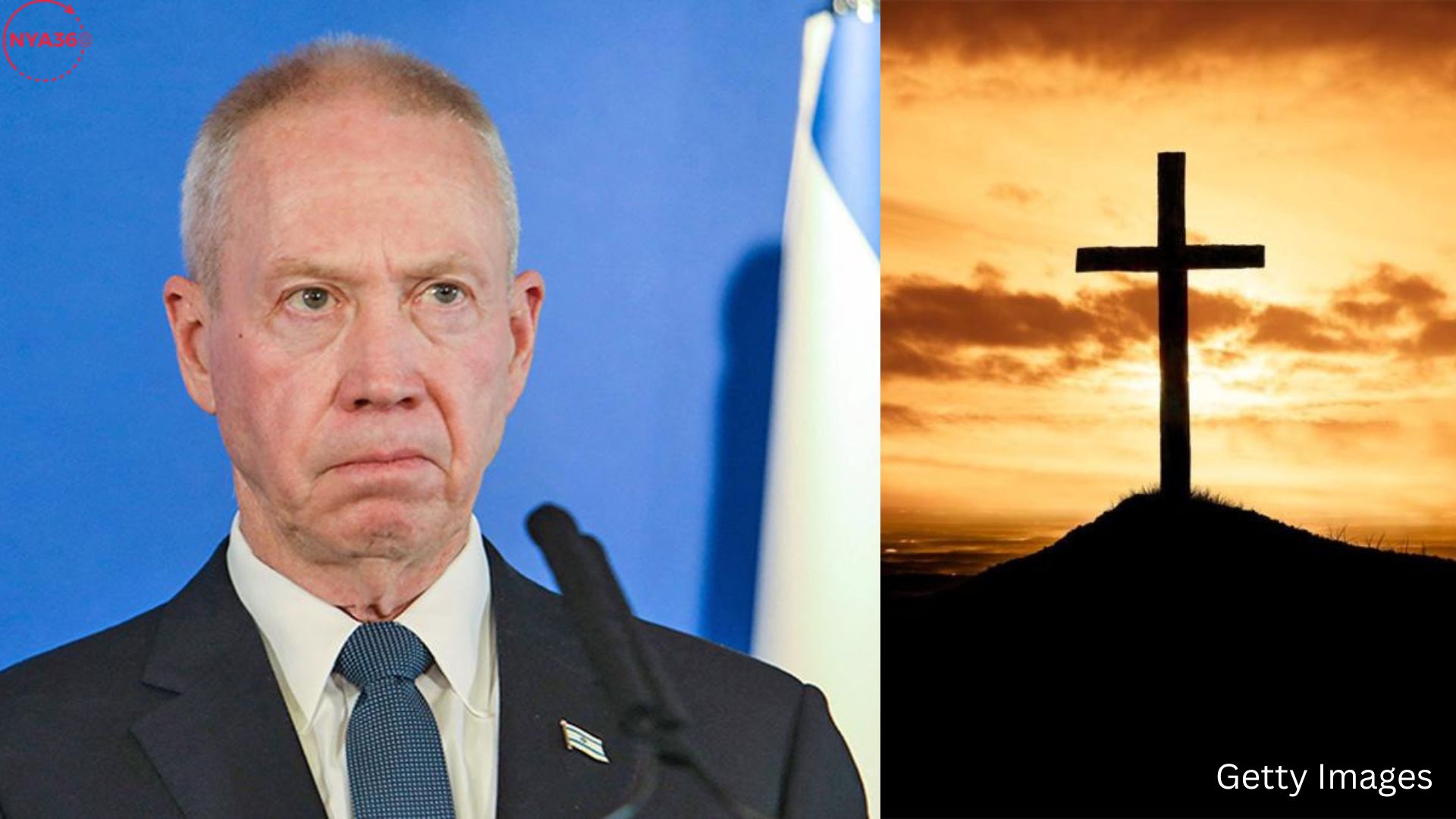The Israeli army’s recent move to request the removal of a Christian cross from the burial of a soldier who perished in Gaza has ignited significant controversy. The episode, as reported by The Jerusalem Post, has prompted inquiries on religious tolerance, the treatment of Christian symbols in a majority Jewish state, and the wider ramifications for Israel’s relations with its Christian supporters, especially American evangelical Christians. The decision, based on a verdict by the IDF Chief Rabbi, expressed worries that the presence of a Christian cross in a Jewish cemetery could compromise the sanctity of the location. However, the response has been rapid and intense, with many alleging that Israel has shown disrespect towards the religious symbols of those who fought and perished in its defense.
The Religious Context and the IDF’s Decision
The core of this debate lies in a decree by the IDF Chief Rabbi, who asserted that the sanctity of a Jewish cemetery would be undermined by the appearance of a Christian cross on a soldier’s tomb. Israeli legislation prohibits the placement of a cross or any non-Jewish religious symbol on military headstones in Jewish cemeteries. This verdict was cited to justify the removal of the Christian cross from the burial of a soldier who perished while fighting for Israel in Gaza. The soldier, although Christian, was interred in a Jewish cemetery, prompting inquiries regarding the respect for his religious identity.
The Defense Ministry underscored the need to maintain the Jewish identity of the Haifa military cemetery, where several deceased Jewish soldiers are interred. The cross, an essential emblem of Christianity, was regarded as incinconsistentth the sanctity of the Jewish burial ground. A black cloth was draped over the gravestone to obscure the cross, an action that some opponents perceived as a negation of the soldier’s religious identity.
The Reaction from Christian Communities
The elimination of the cross has incited resentment among Christian communities, both in Israel and beyond. This behavior represents a significant disrespect for the soldier’s faith and a general contempt for Christian symbols in Israel. The incident has resonated, especially among American evangelical Christians, many of whom have been fervent defenders of Israel. These evangelical organizations have always regarded their support for Israel as a religious obligation, grounded in biblical allusions to the Holy Land and the Hebrew populace.

This episode has prompted certain evangelicals to reevaluate the nature of their support for Israel. Many are questioning whether the Israeli government genuinely honors Christian ideals and symbols, or if their steadfast support has been presumed. The handling of the Christian soldier’s grave has ignited a wider discourse over Israel’s treatment of religious minorities and the appropriateness of American Christians maintaining unwavering support for a nation that appears to overlook their religious convictions.
The Influence of Evangelical Christians on U.S.-Israel Relations
American evangelical Christians have significantly influenced U.S. policy regarding Israel. Their political and financial backing has been crucial in sustaining robust U.S.-Israel relations, as numerous evangelicals perceive Israel’s existence as a realization of biblical prophecy. In exchange, Israel has sought the backing of evangelicals, acknowledging their impact on American politics.
Nonetheless, the event involving the grave of the Christian soldier has prompted inquiries over the authenticity of Israel’s rapport with its Christian advocates. Critics contend that Israel has promptly embraced the financial and political backing of evangelicals, yet has been sluggish in honoring their religious symbols and ideals. Some perceive the removal of the cross from the soldier’s grave as a betrayal of those who have supported Israel throughout its most challenging times.
The Wider Consequences of Israel’s Religious Policy
This dispute underscores the difficulties Israel encounters in balancing its identity as a Jewish state with the need to honor the religious diversity present inside its boundaries. Israel, as a nation with a notable Christian minority, has frequently navigated a delicate balance between preserving its Jewish identity and honoring the rights of religious minorities. The situation regarding the grave of the Christian soldier has revealed conflicts between these two objectives, with detractors alleging that the Israeli government favors Jewish religious legislation at the expense of Christian citizens’ rights.
The decision by the IDF Chief Rabbi, resulting in the removal of the cross, is based on Jewish religious law. For several Christians, this judgment appears to be an insult to their faith, especially considering the soldier’s sacrifice in defense of Israel. The black cloth draping the headstone is perceived by many as a symbol of obliteration, both literally and figuratively concealing the soldier’s Christian identity. This episode has prompted unsettling inquiries over the boundaries of religious freedom in a nation that prides itself on its democratic values.

The Israeli-Palestinian Conflict and Christian Advocacy for Israel
The episode occurs concurrently with Israel’s growing criticism of its treatment of Palestinians, especially in Gaza. Many opponents view the removal of the cross from the Christian soldier’s burial as a recent manifestation of Israel’s indifference towards religious and cultural distinctions. The wider context of the Israeli-Palestinian conflict has prompted inquiries into whether Israel’s treatment of Christians reflects a greater trend of exclusion and marginalization.
For American evangelicals, many of whom have endorsed Israel due to its biblical importance, the current inquiry is whether such support can persist in light of occurrences like this. The handling of the Christian soldier’s grave has compelled several evangelicals to reevaluate their association with Israel and to question whether their support is being used.
A Pivotal Moment for U.S.-Israel Relations?
The removal of the cross from the Christian soldier’s burial transcends mere disagreement regarding religious symbols; it epitomizes the intricate and frequently contentious connection between Israel and its Christian advocates. This tragedy has prompted several American evangelicals to reevaluate their unwavering support for Israel.
Israel has the problem of reconciling its identity as a Jewish state with its dedication to religious liberty. The removal of the cross from the soldier’s burial may have been based on religious law, nevertheless, it has estranged some steadfast supporters of Israel.
The ongoing issue indicates that the relationship between Israel and its Christian allies is at a pivotal juncture. The potential for this occurrence to prompt a reassessment of that relationship is yet to be determined. The removal of the cross has undeniably prompted significant inquiries regarding religious tolerance, respect for diversity, and the future of U.S.-Israel relations.
Follow us on social media: Instagram, Threads & Twitter X @nya360_ YouTube & Facebook @nya360.





